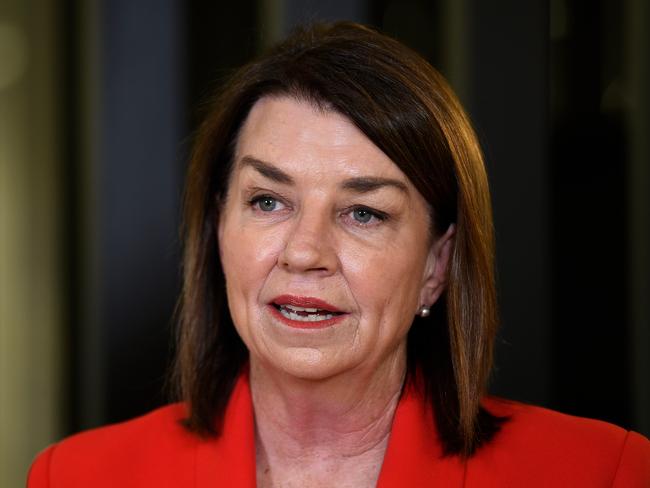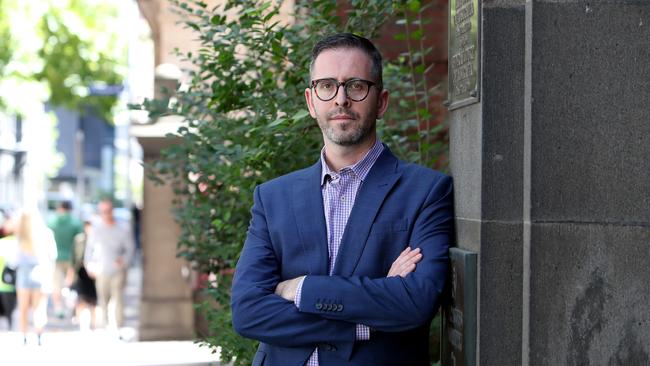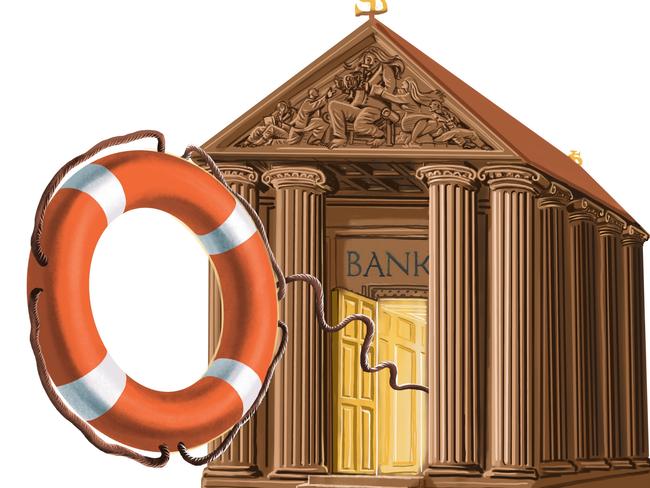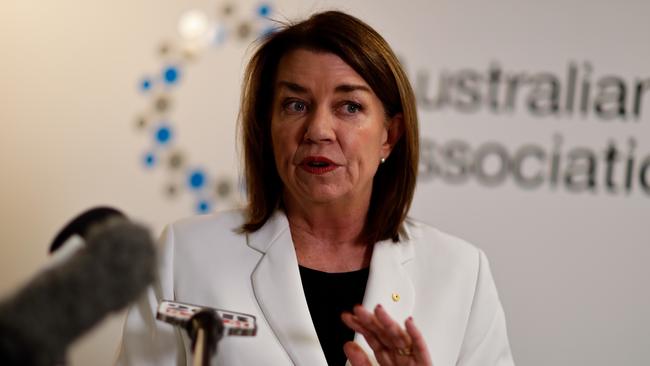Elderly Australians to receive tap-and-go debit cards
Elderly banking customers who regularly use passbooks will be sent tap-and-go debit cards in a bid to reduce contact while shopping.
Saver HQ
Don't miss out on the headlines from Saver HQ. Followed categories will be added to My News.
Some half a million Australians who don’t have debit cards and can’t use contactless payments for groceries will now be sent the cards by their banks.
The cards are being issued on the basis that these mainly elderly Australians, many of whom still use passbooks, don’t have to use them.
But the banks are voluntarily offering the cards, which will be linked to accounts, to give these customers the option of using a debit card to shop if they are isolating or in quarantine.

Australian Banking Association CEO Anna Bligh said these customers are usually aged 70 years or more, regularly use passbooks and like to withdraw cash from their bank branches to pay for bills and groceries.
“These cards will be sent out to people with instructions that the banks have people on the other end of the line to help,” Ms Bligh told ABC TV on Wednesday.
But she also urged family members to be aware, in case their relatives aren’t quite sure when they check the mail, and to try to help them through the card activation process.
Customers do not have to pay anything to use the cards.
HOW TO GET BANK HELP DURING VIRUS CRISIS
Millions of Australians with financial worries caused by COVID-19 have a big safety net: their banks are not planning to send them to the wall.
Assistance packages have been unveiled to help prevent people from sinking into a debt spiral, but you’ll have to be proactive if you want a helping hand.
Six-month repayment holidays for home loan customers have grabbed most headlines, and there is also help for credit cards and other debts.
Consumer Action Law Centre chief executive officer Gerard Brody said banks were legally obliged to offer assistance to customers in financial difficulty, but the help varied.
“Major banks are all offering customers the option to defer home loan repayments for up to six months,” he said.

“Also, all banks have agreed that deferrals on loan repayments on mortgages or other credit products, such as a credit card, will not affect customer’s credit ratings, provided they were up-to-date with repayments prior to COVID-19.”
Mr Brody said people should ask to have repayments lowered, fees and interest waived or reduced, or products restructured.
Here’s a summary of the help on offer from the big four banks.
HOME LOANS
ANZ suggests customers examine using money in their redraw facilities or offset accounts, or move their loan to minimum repayments or interest-only repayments. If that is not possible they can apply for COVID-19 hardship assistance to defer payments for six months, with a three-month check-up. But interest on the loan will continue to accrue, it warns.
The Commonwealth Bank says people whose income has disappeared or been significantly reduced can defer home loan repayments for six months.
“Any available redraw will be used first during the six months unless you specifically move it to another account in order to provide extra cash flow,” the bank says. Tens of thousands of CBA customers requested deferrals and the bank is reducing repayments to the minimum required for about 730,000 customers from May 1.
NAB’s home loan repayment pauses are for up to six months for both owner occupiers and investors and can be requested online or over the phone.
“After a repayment pause ends, your loan size will increase and your repayment amount may need to change as a result,” NAB says.
Westpac says people who have had home loans for more than a year can consider reducing repayments by up to 50 per cent for up to six months.
It says customers who have lost their job or income can apply to defer mortgage repayments for three months “with an extension for a further three months after review”.

CREDIT CARDS
ANZ recommends transferring to a product with lower interest rates, lowering your credit limit or setting up direct payments. It says it will discuss financial hardship assistance with customers.
CBA has offered some credit card breathing space to people struggling to meet commitments before Government stimulus payments arrive in April and May.
“If you have missed your credit card minimum repayment in March, CommBank will automatically refund the late fees and interest charges for the month of March – you will not need to do anything to access this refund,” it says.
NAB is reducing minimum monthly payments on credit cards to either $5 or 0.5 per cent of the closing balance – whatever is greater – for at least three months for statements issued after April 27.
It is not charging late payment fees for all personal and business credit cards for at least the next three months.
Westpac has some credit card repayment deferral options for customers and says “financial hardship applications are assessed on a case-by-case basis”.
OTHER DEBTS
Personal loans and other loans can pile up, and ANZ says people can consider reducing minimum repayments, using redraw funds or contact it about financial hardship assistance.
CBA says people can defer repayments on eligible small business loans for up to six months. Personal loan customers have an option to defer repayments for two months and can request this using an online form, it says.
CBA has also added an extra 15 government benefits to its Benefits Finder app feature following a surge in its customers seeking government help. It is exploring how to make the tool available for all Australians.

NAB says people ahead of their repayments will be able to apply to reduce their minimum payment to $100 per month.
“If you’re not ahead of your repayments or don’t have access to redraw, and you’re finding it hard to make your repayments, we may be able to offer financial hardship assistance,” NAB says.
Westpac has online financial assistance forms for customers to complete, and has cut interest rates sharply for existing small business customers.
Australian Banking Association chief executive officer Anna Bligh said fast-track approvals processes for assistance were in place and it was best to try to contact your bank online first.
“Call centres are open and working overtime to help customers – however, due to large volumes of calls, we ask people to please be patient,” she said.
“Many banks are contacting their customers directly to see what help they may need. However, if you are worried, it’s very important that customers contact their bank as soon as possible.”
Mr Brody said the Federal Government’s new JobSeeker and JobKeeper programs should make it more likely for banks to help customers.
“Generally, banks will offer assistance to those in financial difficulty if there is a sustainable solution – that is, if, with the assistance, the customer can get back on track over the longer term,” he said.
NEED ASSISTANCE?
ANZ 1800 100 641
CommBank 13 30 95
NAB 1300 683 106
Westpac 1800 067 497
National Debt Helpline 1800 007 007
Originally published as Elderly Australians to receive tap-and-go debit cards
